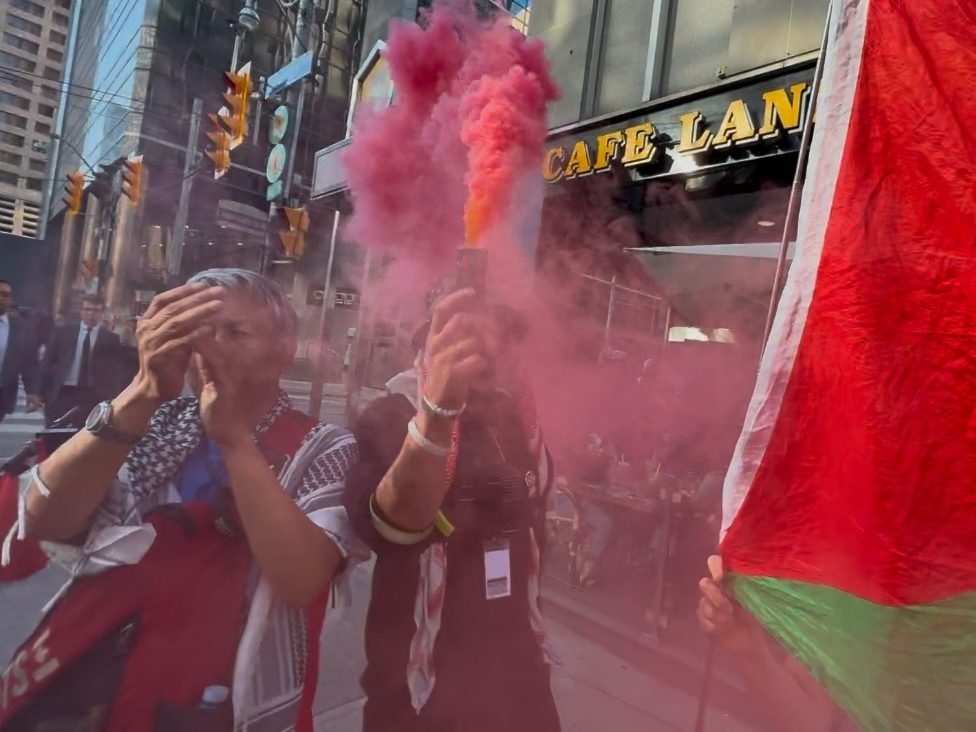Toronto’s Jewish community was recently targeted in a disturbing antisemitic attack involving smoke bombs, an event that has drawn widespread condemnation and highlights a troubling rise in hate crimes across the city and Canada. The incident is part of a broader pattern of hostility, including vandalism and threats, that has intensified fears among Jewish residents. Community leaders and officials are calling for increased protective measures and stronger law enforcement responses to address and curb the escalating antisemitism in the region.
Details of the Smoke Bomb Attack
The attack occurred in a predominantly Jewish neighborhood in Toronto, where perpetrators set off multiple smoke bombs near a community center frequented by Jewish residents. The event took place during the evening hours, causing alarm among local families and prompting an immediate response from emergency services. Fortunately, there were no injuries reported, but the incident caused significant distress within the community.
Context of Rising Antisemitism in Toronto and Canada
This attack reflects a broader, worrying increase in antisemitic incidents across Toronto and the country. Data from local law enforcement and national organizations indicate a rise in hate crimes targeting Jewish individuals and institutions over the past year. These include vandalism of synagogues, defacement of Jewish cemeteries, and threats directed at community members. Experts attribute this surge to a combination of factors such as social and political tensions, misinformation, and the influence of extremist ideologies.
Community Response and Calls for Action
Jewish community leaders have expressed deep concern over the safety of residents and are urging government officials to implement stronger protective measures. There have been calls for increased police patrols in vulnerable areas, enhanced security at community centers and religious sites, and the development of educational programs aimed at combating antisemitism.
Toronto’s Mayor and other local officials have publicly condemned the attack and pledged support for the Jewish community. They emphasized the necessity of a coordinated approach involving law enforcement, community organizations, and policymakers to effectively address and reduce hate crimes.
Law Enforcement and Investigation
The Toronto Police Service has launched an investigation into the smoke bomb attack, treating it as a hate-motivated crime. Authorities are appealing to the public for information and have increased surveillance in the area. The investigation is ongoing, and law enforcement officials have reassured the community that all necessary resources will be devoted to identifying and prosecuting those responsible.
Impact on the Jewish Community
The attack has heightened fear and anxiety among Toronto’s Jewish residents, many of whom report feeling less secure in their daily lives. Community organizations have responded by providing support services, including counseling and increased security training for community members. The incident has also sparked discussions about resilience and solidarity, both within the Jewish community and in broader society.
Conclusion
The smoke bomb attack in Toronto is a stark reminder of the persistent threat posed by antisemitism. It underscores the urgent need for a comprehensive strategy to protect vulnerable communities and combat hate crimes through education, vigilance, and strong legal measures. As the investigation proceeds, community leaders and officials continue to work together to ensure safety and promote unity in the face of rising intolerance.
The recent smoke bomb attack targeting Toronto’s Jewish community highlights the ongoing and urgent challenge posed by antisemitism in the city and across Canada. This incident, along with the increasing frequency of hate crimes, calls for a unified response from government authorities, law enforcement, and community organizations. Strengthening protective measures, enhancing public awareness, and committing to thorough investigations are essential steps to safeguard vulnerable populations. The continued collaboration among community leaders, officials, and residents aims to foster a safer, more inclusive environment and to stand resilient against intolerance and hate.

